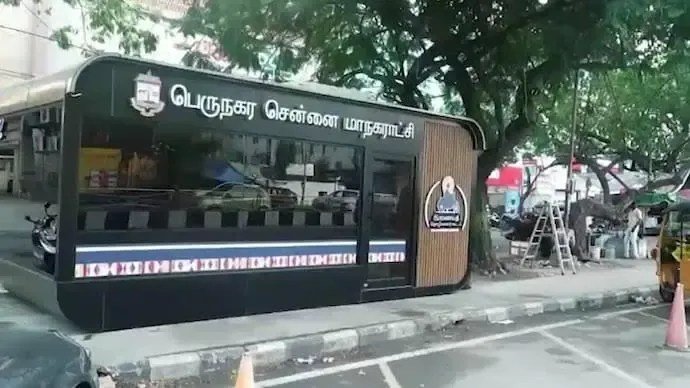Will Chennai Corporation Create More Lounges for Gig Workers with Disability-Friendly Designs?

Synopsis
Key Takeaways
- GCC has opened lounges for Gig workers in Chennai.
- Facilities include air conditioning and restrooms.
- Advocates urge for inclusive designs.
- Accessibility is a legal requirement under the RPwD Act.
- Minor changes can significantly enhance accessibility.
Chennai, July 17 (NationPress) In a move aimed at assisting Gig economy workers, the Greater Chennai Corporation (GCC) has inaugurated specialized lounges in Anna Nagar and T Nagar. These lounges are equipped with air conditioning, power outlets, and restroom facilities for food delivery personnel and other Gig workers to recharge during their breaks.
The GCC is planning to establish additional lounges in locations such as Thiruvanmiyur, Villivakkam, Royapettah, Mylapore, and Nungambakkam. However, disability rights advocates are urging the civic authority to make sure these facilities are inclusive and accessible for People with Disabilities (PwDs).
Even though the initiative has garnered positive feedback, there are significant concerns regarding the existing lounges' accessibility.
A food delivery worker utilizing a battery-operated wheelchair mentioned that despite the physical toll of long hours, he found the Anna Nagar lounge inaccessible.
“The lounge is situated on a pavement lacking a ramp, and the extended door frame hinders my wheelchair from entering,” he stated.
“This initiative is commendable, but it must address the needs of disabled Gig workers who depend on such facilities,” he added.
S. Namburajan, vice-president of the Tamil Nadu Association for the Rights of All Types of Differently Abled and Caregivers (TARATDAC), emphasized that under the Rights of Persons with Disabilities (RPwD) Act, 2016, the government has an obligation to ensure accessibility in public infrastructure.
“Despite the legislation, policymakers frequently develop spaces that marginalize persons with disabilities. Accessibility requirements need to be integrated from the planning phase,” he remarked.
Activists contend that simple modifications could have a profound effect.
Ganga Devi, a disability rights advocate, proposed several immediate enhancements: “A ramp linking the road to the lounge entrance is crucial. Additionally, wheelchair charging stations should be installed, and the restroom door should be at least three feet wide. Toilets must be spacious and compliant with accessibility standards.”
Addressing these concerns, GCC Commissioner J. Kumaragurubaran mentioned that the civic body is aware of the issues.
“We are in the process of installing a temporary ramp while we work on a permanent solution,” he stated.
As Chennai continues to enhance its infrastructure for Gig workers, activists underscore that inclusivity must be prioritized from the very beginning.







